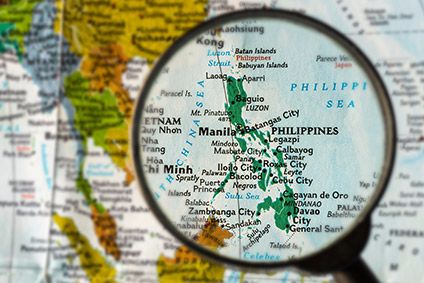
The Philippines department of trade and industry is finalising a roadmap to revive the textile and garment industry.
The latest draft of the Textile-Garment Industry Roadmap 2020-2029 – which has yet to be formally released – lays out the path for an integrated textile-garment industry, strong links between industry, government and the private sector, as well as a dedicated trade office.
Devised by the government’s Board of Investment, the roadmap includes a request that the government combats unfair competition for local suppliers through smuggling and so-called ‘ukay-ukay’ stores. These typically involve selling secondhand apparel imported from North America and Europe for charity distribution but illegally diverted from the ports to these grey market retailers. The items are then sold at 10% to 20% of the original retail price, undermining legitimate retailers and brands.
The roadmap also calls for the provision of capital and land to increase clothing and textile production across the Philippines archipelago, encouraging the purchase of new equipment, as well as highlighting the need for fiscal incentives through reduced value-added tax and reduced power rates.
For the textile sector, other strategies proposed within the roadmap include investing in R&D for product development and marketing, incorporating loom weaving into the curriculum to create awareness, and establishing regional/localised ecosystems of backwardly linked supply chains.
As regards the garment industry, short-term strategies include enhancing access to export markets by taking advantage of free trade agreements and negotiating for more liberal rules of origin requirements with the Philippines’ trading partners.

US Tariffs are shifting - will you react or anticipate?
Don’t let policy changes catch you off guard. Stay proactive with real-time data and expert analysis.
By GlobalDataRestricted development
Industry observers speaking to just-style point out that high power costs within the country, a poor record in paying workers well, and reducing their impact on the environment have restricted the development of the country’s garment exporting business.
Marisa D Nallana, president of the Philippine Exhibitions and Trade Corp (PETCO), says the country remains one of the more expensive countries in the world in terms of electricity rates.
According to research from Digital Energy Asia, an Indonesia-based energy service, commercial and industrial electricity rates in the Philippines were higher than in Indonesia, Malaysia, Thailand and Vietnam.
“High power rates are a problem, and feedback from most foreign companies who have plants and offices here is that we have a high cost of electricity,” Nallana says.
Robert Young, trustee for the textile, yarn and fabric sector of the Philippine Exporters Confederation (Philexport), and president of the Foreign Buyers Association of the Philippines (FOBAP), believes more Filipino manufacturers and exporters should make their operations socially compliant on pay, conditions and sustainability – which is important as they expand in local and international markets.
Uphill battle
The EU’s High Representative for Foreign Affairs and Security Policy in a report to the European Council and European Parliament on 10 February noted that challenges remain in tackling anti-union discrimination and violence within the Philippines. It said the country needs to do more to reduce the reliance on short-term contracts and combating child labour.
“Foreign buyers want their brand and their reputation as a company to be associated only with positive, healthy, clean, safe and quality,” Young told just-style.
“Those importers with a designated buyer representative office may have in-house auditors as well as their own due diligence practice in qualifying deserving factories, an effort to protect the reputation of the company/brand they represent,” he adds.
Illustrating that the Philippines is fighting an uphill battle in terms of boosting its reputation as an outsourcing centre, the country’s exports of apparel and clothing accessories in 2019 dropped by 7% year-on-year, to US$906m. Exports of yarns and fabrics performed even worse in the same period, dropping by 8% year-on-year, to US$197m.
The country is one of the few that has not seen a boost in garment export orders as a result of the US-China trade war – despite government plans to boost local manufacturing capacity.



